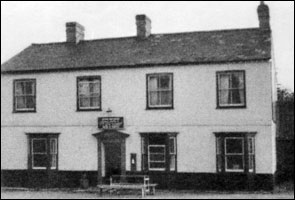![]()
The contents on this page remain on our website for informational purposes only.
Content on this page will not be reviewed or updated.
 |
|
 |
|
|
||||
|
Denbigh Hall Inn
|
||||
|
||||
|
Milton Keynes Citizen May 10, 2012
According to the local diarist, the Reverend William Cole, before 1700 there were two ‘constables houses’ on the Watling Street - Willow Hall and Denbigh Hall. The former was pulled down in 1706 but as ‘a reputed Bawdy House’ Denbigh Hall ‘alas still stands’! In fact at the beginning of the 18th century mention of ‘Denby Hall’ is made as being situate just south of Rickley Wood in, as oft repeated in most books on local history, an area long associated with nefarious deeds. As an alehouse the inn was supposedly the haunt of highwaymen and in 1725 mention is made of William Norris as an ‘ale draper.’ As for the naming of the pub, according to a letter from the contemporary Earl of Denbigh, published in the Rugby Advertiser of June 3rd 1909, he claimed that his great, great grandfather, Basil, the 6th Earl, had been forced to put up at the Marquis of Granby (as the inn was then supposedly known) when a wheel sheared from his carriage. On receiving commendable service he began to regularly patronise the establishment, whereby the name became the Denbigh Hall. However, since the inn is mentioned as Denbigh Hall in 1715, and the 6th Earl wasn’t born until 1719, something seems amiss! Creating further confusion, at the building of the London to Birmingham railway line a rail guide states that the inn had been recently named the Denbigh Hall by the purchaser, Mr. Calcroft, prior to having been called the Pig and Whistle! Between Denbigh Hall and Northampton the line had been surveyed by Richard Sheppard and one of the local farmers who hired his carting team to the contractors was Thomas Crane. Before the completion of the Kilsby tunnel, railway passengers alighted at Denbigh Hall to continue their journey by road to the next completed section of the railway and, in his old age, Thomas could recall the coaches pulling up at this Denbigh Hall ‘station,’ around which a veritable ‘shanty town’ had arisen to cater for the travellers’ needs. The arrival of the railway killed off the coaching trade and in 1914 the inn was put up for sale by Mr. W. Villars, who was leaving the district. However, after World War One motor traffic began to increase, bringing a more prosperous custom, and when in 1922 Albert Chambers came to Bletchley he ran a farm of 40 acres whilst his wife, Daisy, ran the Denbigh Hall Inn. However, apart from the railway and road the inn also witnessed another form of transport when a monoplane, piloted by a French woman, made a forced landing in nearby Buttons Field. She had lost her way whilst flying to Northampton and continued her journey by car. Moving to 56, Bletchley Road, Mr. and Mrs. Chambers retired in 1936 but in the early months of World War Two the inn became acquainted with notoriety when the landlord, who had previously been the licensee of the Maltsters Arms, was sent to prison for two months for dealing on the black market in meat. During the war a soldier was killed under the railway bridge when a lorry ploughed into a column of troops, and with many accidents having occurred here it was a few years after the war that, in the wake of a triple crash, which caused a nose to tail traffic jam in both directions for 1½ miles, a proposal was made for roundabouts to be constructed on either side. However, in view of proposed new developments the Bletchley Road Safety Association postponed the idea. As for the inn, in 1956 this was temporarily reprieved from closure when, having been given reasons why a water supply had not been laid on, Bletchley magistrates renewed the licence. This was dependent on attempts being continued to provide a supply, although the whole question was perhaps academic, since with the inn being an old unlicensed house the brewery wondered if the magistrates had any power to withhold a licence! Finally the matter came to a close on April 4th 1957 when the premises were closed by the Aylesbury Brewery Company due to a lack of running water. The building was then demolished at the end of the year. |
||||
|
|
||||
|
|
||||


